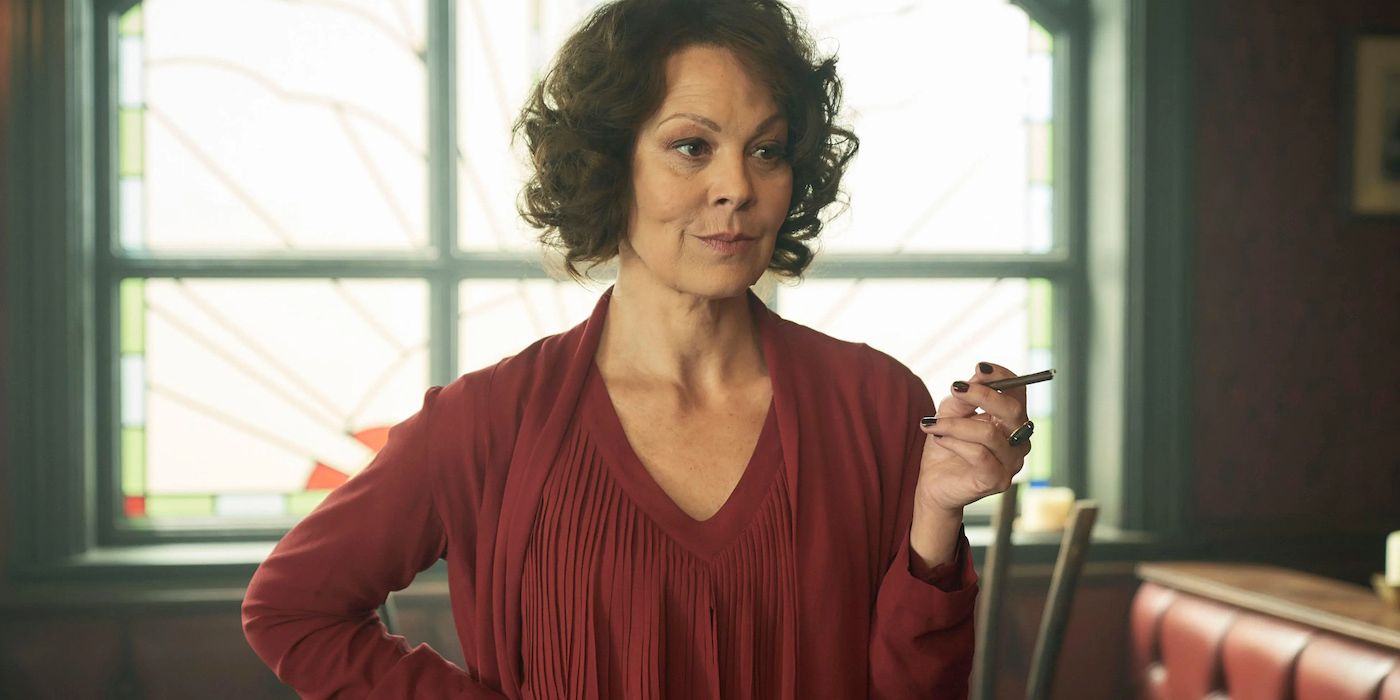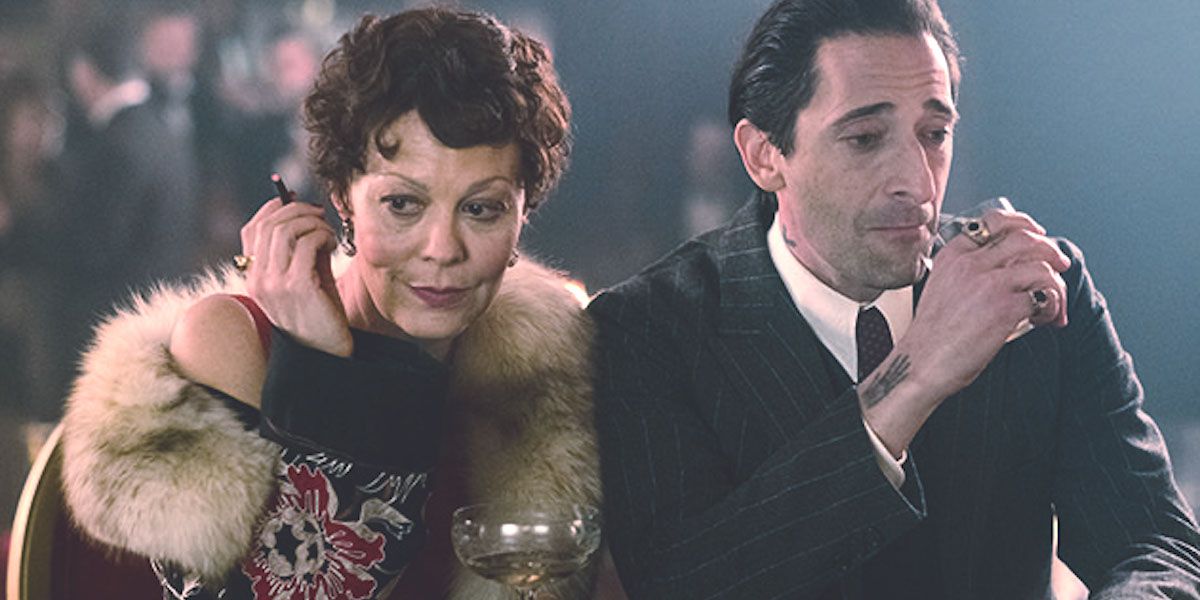Editor's note: The below article contains spoilers for Season 6 of Peaky Blinders.The great English actress Helen McCrory tragically passed away last year at the age of 52. McCrory was beloved by film fans for her work in The Queen, Hugo, and the Harry Potter franchise, but she landed one of the best roles of her career on the BBC period crime series Peaky Blinders. McCrory’s character, Polly Gray, is the domineering aunt of the show’s lead, Thomas Shelby (Cillian Murphy). Amidst the Shelby family’s bickering and brawling, Polly often emerges as the voice of reason. That didn’t mean that she was any less ruthless.
McCrory’s tragic death presented showrunner Steven Knight with a narrative challenge. Polly was originally set to play a major part in the show’s final season. Season 5 had left the characters in a vulnerable position; having failed to assassinate the British Union of Fascists leader Sir Oswald Mosley (Sam Claflin), Tommy is forced to make a few unusual alliances. Tommy reluctantly makes an arrangement with the Jewish gangster Alfie Solomons (Tom Hardy), his former rival. He also has to maintain his public relationship with the Nazi movement. This draws the ire of his siblings, Arthur (Paul Anderson) and Ada (Sophie Rundle), as well as Polly herself.
It was clear that Polly was one of the most influential characters in the series, and she was set up to have an intriguing subplot in the final story arc. Polly’s son, Michael (Finn Cole), has broken from the family, and plans to kill Tommy. Although Knight considered explaining Polly’s absence by having the character go on an off-screen adventure in America, he realized that it “wouldn’t feel right” for Polly to not factor into the show’s conclusion. He decided to kill off McCrory’s character. Her death is revealed within the opening moments of the Season 6 premiere episode “Black Day.”
This was a bold narrative choice. If it was handled improperly, it could feel disrespectful and dismissive of McCrory’s memory. However, the final season gracefully incorporated the real tragedy by allowing the characters to reflect on Polly’s impact. This serves as a great way to look back at how integral Polly was to the show, and gave the actors a chance to mourn their friend with their performances. Polly’s influence is even more clear when she’s no longer there to guide her family’s decisions.
The season opens with a funeral sequence, where the Shelbys gather to mourn Polly. It’s clearly an emotional moment, and the heartfelt performances from Murphy, Anderson, and Rundle indicate that there’s nothing insincere about the sadness that they are showing. However, the sequence itself isn’t a random moment that feels hastily added to a completely different story. Polly’s death only deepens Michael’s resolve to take Tommy down. Tommy had received word that after the failed attempt on Mosley’s life, several members of the Shelby gang were executed by the I.R.A., including Polly. Michael is outraged that Tommy failed to protect his mother.
Michael has been one of the most complex characters in the series. Although he was naive when he first started working for his family business, Michael grew rebellious, and started disobeying Tommy’s orders. The only reason for viewers to care for Michael going into Season 6 was the way it would impact Polly; although Polly disagreed with Michael’s decisions, she didn’t want to have to bear the death of her son. Without Polly there to make him more sympathetic, Michael turns into a completely reprehensible antagonist.
Polly’s methodical reasoning had helped bridge the gap between the Shelby siblings. Tommy is intertwined within the political infrastructure, Ada has questioned her role in the organization, and Arthur has relapsed into alcoholism and addiction. They are at each other’s throats even more frequently without Polly there to negotiate. This adds to the suspense in what is already a very stressful season of television. There are several moments in which Tommy scolds Arthur, telling him that Polly is no longer there to “rescue” him from embarrassing situations.
Normally, Tommy would turn to Polly for advice in his most desperate moments; now, he has nobody. However, flashback footage is incorporated as Tommy’s memory, as he imagines his aunt encouraging him to be as ruthless as possible. This feels like an appropriate way to incorporate the advice that Polly would have given Tommy if she was still alive. It also signifies Tommy’s reliance on Polly; even in death, there’s no one he trusts more.
Polly’s influence on Ada is also clear as the younger Shelby sibling continues to develop her agency. Ada has followed her aunt’s example, and refuses to let sexism prevent her from playing a major role in the family’s decisions. Ada was already being set up to inherit the leadership position from Tommy; Season 6 shows how critical the precedents that Polly set were.
The loss of Polly weighs heavily within the final season. It wouldn’t feel right to recast the character after McCrory had made her so iconic, and to write her out would feel inconsistent with Polly’s characterization thus far. Knight and the writers were able to pay tribute to McCrory within the context of the narrative. Peaky Blinders spends an appropriate amount of time focused on the tragedy before resuming the narrative. The Shelbys are heartbroken by the loss, but they soon get back to work; it’s what Polly would have wanted. Based on what Knight and Murphy have shared about McCrory, it’s what she would have wanted too.



.jpg)